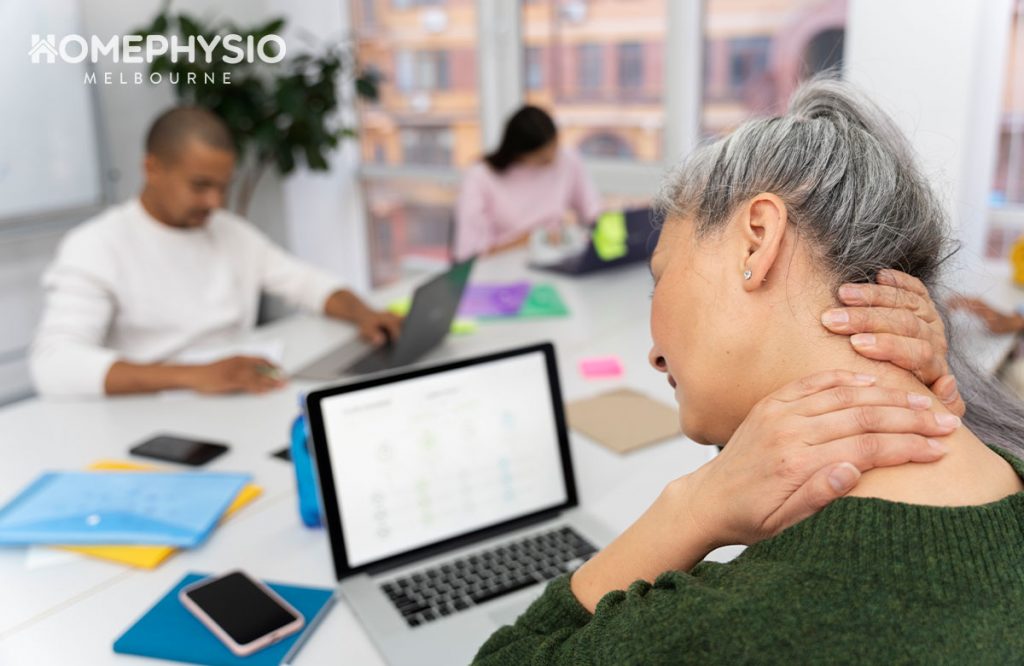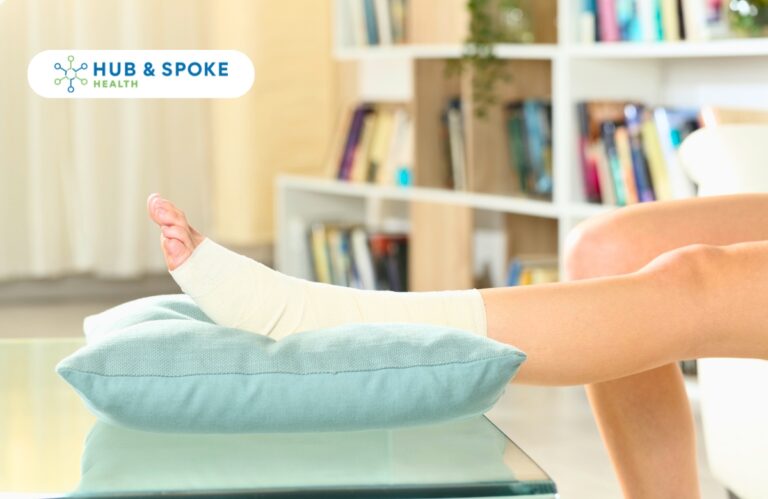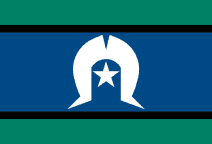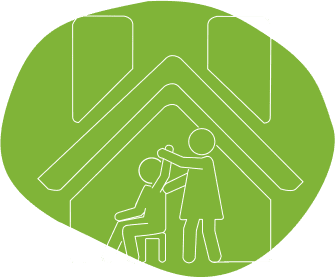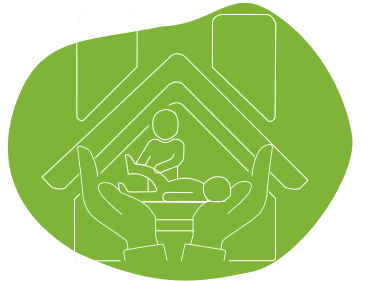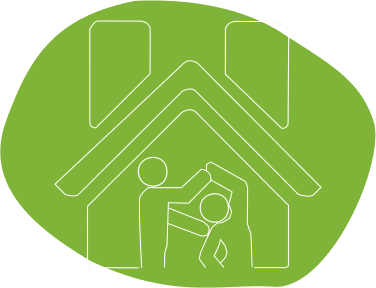Neck pain is such a common issue in Australian adults that roughly 1 in 6 people reading this will be suffering from it! Across your lifespan, the chance of having an episode of neck pain is close to 50%. It is common for people suffering from back pain to develop neck pain. Neck issues are also a common cause of headaches.
The good news is that many types of neck pain can be prevented through simple changes to our lifestyle. Here are a few simple ways you can look after your neck and prevent injury.
1. Move every 30-45 minutes
When we stay in the one posture for long periods, we have to keep tension in the muscles to maintain that posture, as well as putting pressure through the joints in our neck. Even the “perfect” posture held for too long can tire our muscles and stress the joints!
Try to get up from your chair every 30 minutes and stretch, walk or move your neck, head and shoulders.
2. Stretch
If you do work that involves prolonged sitting, or a lot of leaning forward/bending, then it is a good idea to stretch your upper body to minimise strain on your neck and upper back. Here are some examples, which should be held for 30-60 seconds and completed on at least 3 days per week to be effective.
Desk setup
For those who work at a desk, or who study, it’s important to make sure that your office environment isn’t putting unnecessary stress on your neck, shoulders and back. Here are a couple of tips on desk ergonomics:
- Sit right back in your chair – so that your back can rest against the chair
- Slightly recline your chair (by about 10-20o) to prevent you from slouching
- Pull the chair in close to the desk so you can rest your forearms on the desk
- Have the top ¼ of the monitor at eye level
We spend 6-8 hours of our day in bed, so it’s important to make sure that your pillow supports your neck properly. There are many different types of pillow on the market. Contoured pillows can support your neck and head to maintain a neutral position when we sleep. People who sleep on their side should use a thicker pillow, and people who sleep on their back should have a thinner pillow.
Talking on the phone
Avoid cradling your phone between your ear and your shoulder. This is especially important if you repeatedly have to use your phone, or use it for long periods (such as people working in admin). Doing this can tighten the muscles and compress the joints on one side of the neck, while overstretching the opposite side.
Don’t use a laptop on your lap!
Despite their name, it’s better for your neck and back to use your laptop on a desk or table. If you use your laptop for long periods (>30mins at a time) then it is a good idea to have a separate mouse and keyboard so that you can elevate the screen to eye level. This will prevent you looking down for long periods, which can put a lot of pressure on the discs in your neck and stress the muscles in the back of your neck.
Ladies – make sure your bra fits!
Wearing a bra which doesn’t fit properly can put extra strain on your shoulders and neck through the straps. It’s important to be properly fitted for your bras and replace them when they become too loose.
Carrying bags
Try to keep your bags light, as carrying heavy bags regularly or for long periods can overwork your neck/shoulder muscles. Backpacks put much less stress on the neck and shoulder muscles than handbags or satchels, as the weight is spread evenly across both sides.
Regular exercise
Keeping active will help to keep your postural muscles strong, and help to minimise stiffness in your neck. It also helps you get a better night’s sleep, which is important for keeping our muscular system healthy.
Neck pain is a very common musculoskeletal issue, but with some simple lifestyle changes, we can prevent a large majority of cases. This list is definitely not exhaustive, but it should be a very good start.
If you have any concerns about your neck, make sure to speak with one of our physios to get specific advice to manage and treat your neck. Remember, the longer you leave and injury, the longer it takes you to recover!
Author
-

Hub & Spoke is a unique Allied Health service that delivers the latest in therapies and treatments to you both in-home or at work to make health care accessible to everyone.
View all posts



